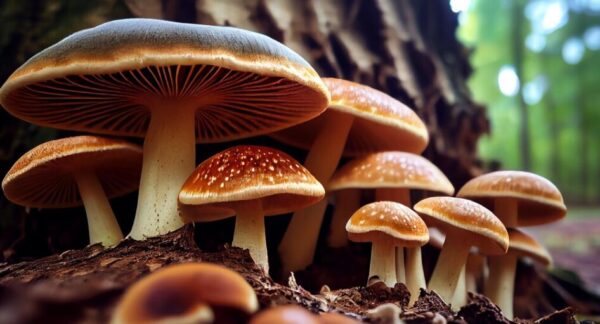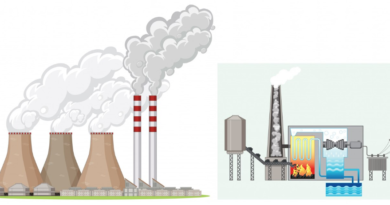What is the Role of Decomposers in the Ecosystem
Unlocking Nature’s Recyclers: The Vital Role of Decomposers in Ecosystems
In the intricate web of life, every organism plays a crucial role. Among these, decomposers hold a particularly vital position, yet their significance often goes unnoticed. Decomposers, though often overlooked, are the unsung heroes of ecosystems. They are nature’s recyclers, breaking down organic matter and returning essential nutrients to the soil, thereby sustaining life in the ecosystem. In this article, I will delve into the fascinating world of decomposers, exploring their importance, functions, and impact on the environment.
What are Decomposers?

Decomposers are organisms that play a pivotal role in the process of decomposition, the breakdown of organic matter into simpler substances. They include various microorganisms such as bacteria, fungi, and some types of insects. Unlike producers, which create organic matter through photosynthesis, and consumers, which feed on other organisms, decomposers specialize in breaking down dead organic material.
Types of Decomposers
Decomposers come in various forms, each with its own niche and function within the ecosystem:
- Bacteria: Bacteria are among the most abundant decomposers in the environment. They play a key role in breaking down organic matter in both aerobic (with oxygen) and anaerobic (without oxygen) conditions. Examples include Bacillus, Clostridium, and Pseudomonas.
- Fungi: Fungi are another important group of decomposers, particularly in forests and other terrestrial ecosystems. They secrete enzymes that break down complex organic molecules, and their hyphae penetrate through the soil, facilitating nutrient uptake. Common examples include mushrooms, molds, and yeasts.
- Invertebrates: Certain invertebrates, such as earthworms, insects, and millipedes, also contribute to decomposition. These organisms physically break down organic matter and facilitate microbial decomposition by fragmenting the material. Earthworms, for example, burrow through the soil, aerating it and enhancing decomposition.
Importance of Decomposers
The role of decomposers in the ecosystem cannot be overstated. Here are some key reasons why they are essential:
- Nutrient Recycling: Decomposers break down dead organic matter, releasing nutrients such as nitrogen, phosphorus, and potassium back into the soil. These nutrients are then absorbed by plants, which form the base of the food chain.
- Waste Disposal: Decomposers help clean up the environment by breaking down dead plants and animals, as well as other organic waste. Without decomposers, dead organic matter would accumulate, leading to a buildup of waste and potential environmental hazards.
- Soil Fertility: By breaking down organic matter and releasing nutrients, decomposers contribute to soil fertility. Healthy soil rich in organic matter supports diverse plant life, which in turn sustains a variety of organisms throughout the ecosystem.
- Energy Flow: Decomposers play a crucial role in the energy flow within ecosystems. They transfer energy from dead organic matter to the soil, where it can be utilized by plants and other organisms. This energy flow is essential for the functioning of the entire ecosystem.
The Process of Decomposition
Decomposition is a complex process involving several stages:
- Fragmentation: Decomposers begin by physically breaking down large pieces of organic matter into smaller fragments. This fragmentation increases the surface area, making it easier for decomposers to access and break down the material further.
- Chemical Decomposition: Once fragmented, decomposers secrete enzymes that catalyze the chemical breakdown of organic compounds into simpler molecules. These enzymes break down complex substances such as proteins, carbohydrates, and fats into smaller molecules like amino acids, sugars, and fatty acids.
- Mineralization: In this stage, the simpler molecules produced by chemical decomposition are further broken down into inorganic compounds such as carbon dioxide, water, and mineral ions. These inorganic compounds are released into the soil and are readily available for uptake by plants, thus completing the nutrient cycle.
Conclusion
In conclusion, decomposers are indispensable components of ecosystems, playing a crucial role in nutrient cycling, waste disposal, soil fertility, and energy flow. Despite their small size and often inconspicuous presence, decomposers are essential for maintaining the balance and sustainability of life on Earth. By understanding and appreciating the vital role of decomposers, we can work towards preserving and protecting these valuable organisms and the ecosystems they inhabit.
Q. Why are decomposers important in the ecosystem?
Ans. Decomposers play a crucial role in nutrient recycling, waste disposal, soil fertility, and energy flow within ecosystems. Without decomposers, organic matter would accumulate, hindering the functioning of the ecosystem.
Q. Do decomposers only break down dead organisms?
Ans. While decomposers primarily break down dead organic matter, they also decompose other organic materials such as plant litter, animal waste, and decaying fruits and vegetables.
Q. Can decomposers survive in harsh environments?
Ans. Yes, decomposers are remarkably adaptable and can thrive in a wide range of environments, including extreme temperatures, pH levels, and moisture conditions.
Q. Are decomposers affected by pollution?
Ans. Pollution can have adverse effects on decomposers, particularly those that are sensitive to changes in environmental conditions. Chemical pollutants, heavy metals, and pesticides can disrupt decomposition processes and harm decomposer populations.
Q. Can humans benefit from decomposers?
Ans. Yes, humans can benefit from decomposers in various ways. For example, composting utilizes decomposers to break down organic waste, producing nutrient-rich soil amendments for gardening and agriculture.




